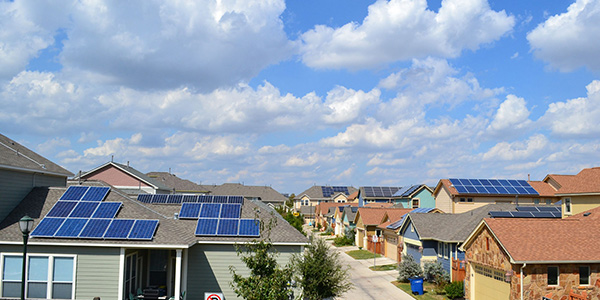Experts last week said it’s mostly policy — not technology — holding back widespread adoption of distributed energy resources supported by smart technology.
Those opinions were on display during Austin, Texas-based electricity data research organization Pecan Street’s “Smart DERs — The Missing Link” webinar Friday.
Eaton Research Lab Engineering Specialist Hossein Ghassempour Aghamolki said there’s still a long way to go in smart DER adoption and that the lack of clear, uniform rules is partly to blame.
“We don’t have a universal strategy. … Every market, region [and] state has its own policy,” he said. Part of the problem is that utilities see DERs as a barrier rather than a tool that can be leveraged through smart meters and load forecasting, he said.
“If the business model is there, the technology can catch up,” Ghassempour Aghamolki said.
Arnela Smajlovic, manager of Siemens’ Microgrid Management System, said microgrids are already able to bid into markets for dispatch instructions on behalf of the DERs they manage. She said that scenario can be realized today, but it lacks a business model for commercial use and monetized incentives.
“This concept is all well ahead of its time technology-wise. … We need to get over this limited use of microgrids,” Smajlovic said. “We’re waiting for the business model to catch up. … It’s the [state] commissions that have to agree on how we use this technology.”
Shashank Pande, a Siemens product manager, said smart DER controllers have improved drastically over the last seven years but are still somewhat limited in their capabilities.
“There’s a lot of room to grow in the future,” he said, noting that while inverters improve continuously, constraints involving data sharing and a lack of real-time control still hinder widespread DER systems.
In the meantime, Pande said utilities could do more to expand demand response and time-of-use programs.
Bandera Electric Cooperative CEO William Hetherington said his co-op near San Antonio is focused on incorporating DERs in a rural setting, a completely different challenge.
Hetherington said the co-op began offering rooftop solar installations and programs after getting tired of third-party solar companies hoodwinking members by overcharging and underperforming on generation programs.
The result is Tesla Powerwall solar batteries “scattered throughout the hills of Texas,” he said. Hetherington said Bandera uses the Apolloware DER management system to analyze energy use and avoid overloading inverters.
The co-op has installed about 200 Apolloware systems and hopes to add another 1,000 by the end of 2021, he said. So far, the co-op simply monitors and provides pricing signals and doesn’t perform load control. Hetherington said the idea is that customers get to choose when to respond to price incentives.
“For some reason, people get really upset when you turn their AC off,” he joked.





